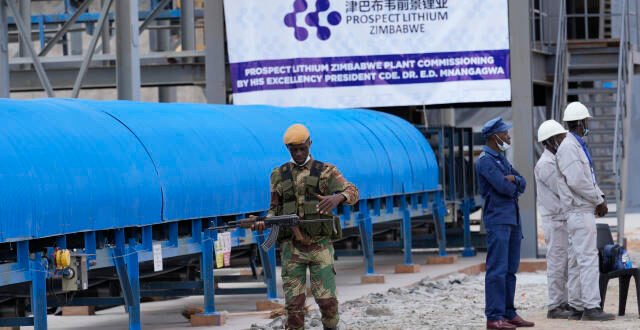Zimbabwe’s Lithium Export Crisis: A Hidden Trade in Plain Sight
Zimbabwe is one of the world’s top producers of lithium, a critical mineral for green energy and advanced technology. However, despite its rich reserves, the country faces a growing challenge: illegal lithium exports that undermine its economic potential and regulatory framework.
In 2023, Peter, a truck driver, was transporting a shipment from a Chinese-owned company when he encountered a border checkpoint between Zimbabwe and Mozambique. Unaware of what was in his sealed container, he assumed everything was in order. What he didn’t know was that the cargo contained raw lithium instead of the chrome listed on the paperwork. This violation led to the impounding of his truck and trailer, valued at over $50,000, and a fine of $5,000 before the company could reclaim the vehicle.
This incident highlights a broader issue: the mislabeling or underreporting of lithium exports by some companies. Zimbabwe, home to Africa’s largest lithium reserves, is among the top eight global producers, yet its output remains significantly lower than that of Australia and Chile. The country’s lithium production reached 1,200 tons in 2021 alone, but the rise in demand has also led to an increase in illegal trading.
The Impact of Illegal Trading
Border officials often turn a blind eye to these violations, either due to lack of awareness or complicity. Tendai, a former border agent, admitted to accepting bribes to allow lithium shipments through the border. He confirmed involvement in the case with Peter and was later arrested and fined. Like many others who spoke to Global Press Journal, Tendai requested anonymity for fear of losing his job.
In 2022, Zimbabwe implemented a ban on the export of raw lithium to curb smuggling and encourage domestic processing. Companies like Arcadia and Bikita Minerals have since established processing facilities. However, the effectiveness of these regulations remains unclear. Official records show a 230% surge in lithium production capacity between 2022 and 2023, but the true impact on revenue is difficult to measure.
Regulatory Gaps and Corruption
Gorden Moyo, director of the Public Policy and Research Institute of Zimbabwe, argues that the regulations are ineffective. He claims that officials, including members of security services, collude with politicians and foreign governments, particularly China, to facilitate illegal exports. Nomsa Jane Moyo, general manager at the Minerals Marketing Corporation of Zimbabwe, maintains that the organization closely monitors mining activities to ensure compliance with export laws.
Despite these efforts, the government seized 22 lithium shipments in 2023 and 23 in 2024. Some were intercepted before reaching the borders, while others were flagged at key checkpoints such as Forbes and Beitbridge. Yet, the scale of smuggling suggests that the measures are not enough.
Secrecy and Misreporting
According to the Minerals Marketing Corporation, Zimbabwe sold 769,086 metric tons of lithium in 2023, valued at $794 million. Most of this ended up in China, which controls 90% of the mining sector. However, sources like Tendai suggest that these figures do not reflect the true volume of lithium leaving the country. Companies often underreport their exports to avoid scrutiny, according to Tendai, a former border agent.
At the mines, employees like Tatenda, an employee at Prospect Lithium Zimbabwe, claim that high-quality lithium is concealed beneath lower-value ore to mislead inspectors. While the ministry of mines conducts inspections, the practice of undervaluing lithium grades persists.
Challenges in Enforcement
Levious Chiukira, a customs and trade consultant, points out that many border officials lack the expertise to differentiate between various forms of lithium. “The revenue authority does not employ geologists, and there is no institutional capacity to address this knowledge gap,” he says. This lack of technical understanding exacerbates the problem of smuggling.
Corruption further complicates the situation. Gorden Moyo notes that while corruption is punishable by law in China, it often goes unchecked when companies operate abroad. The lack of transparency in state contracts with investors also erodes public trust, according to Tafara Chiremba, an environmentalist at the Zimbabwe Environmental Lawyers Association.
Conclusion
The smuggling of lithium from Zimbabwe undermines the country’s ability to benefit from its natural resources. As demand for green energy grows, the need for stronger regulation and enforcement becomes more urgent. Without addressing the gaps in oversight and combating corruption, Zimbabwe risks losing out on the economic opportunities that its lithium reserves could provide.
 Info Malang Raya Its All About World News
Info Malang Raya Its All About World News




